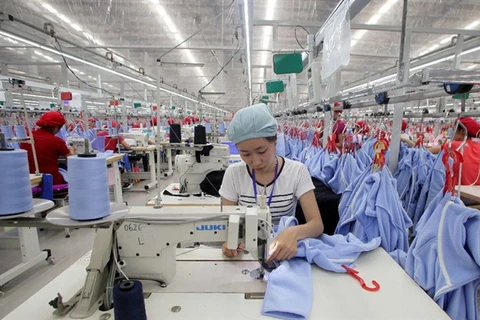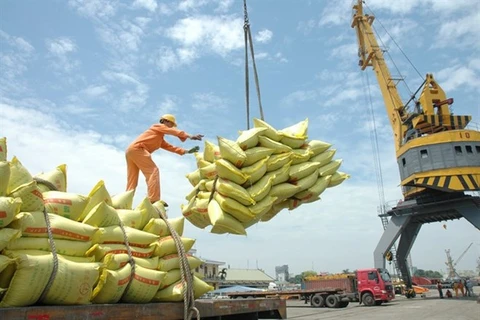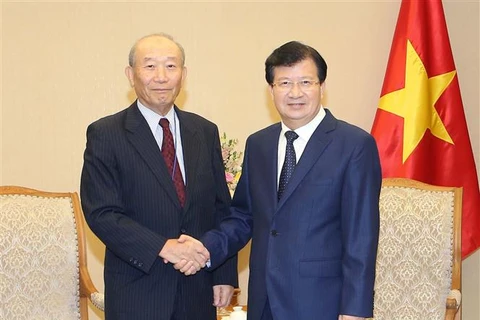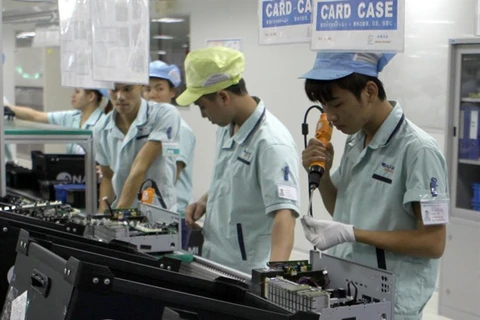Moscow (VNA) – Impressive economic growth, political stability, military strength, and increased prestige in the international arena have put Vietnam in the centre of a new economic structure of the Asia-Pacific Economic Cooperation (APEC) forum, said a Russia expert.
At a recent roundtable themed “APEC 2017 in Vietnam: Regional Economic Development”, Vladimir Mazyrin, Director of the Center for the Study of Vietnam and ASEAN under the Institute of Far Eastern Studies, stated that the successful organisation of the APEC Economic Leaders’ Meeting will help consolidate Vietnam’s prestige in the international arena and its position in Southeast Asia and Asia-Pacific.
The expert noted that Vietnam’s current gross domestic product (GDP) enjoys a 20-fold increase compared with that of the 1990s, forecasting the economic growth will be not lower than 5-6 percent every year.
Established in 1989, the Asia-Pacific Economic Cooperation (APEC) forum comprises 21 economies, including Australia, Brunei, Canada, Chile, China, Hong Kong (China), Indonesia, Japan, the Republic of Korea, Malaysia, Mexico, New Zealand, Papua New Guinea, Peru, the Philippines, Russia, Singapore, Chinese Taipei, Thailand, the US, and Vietnam.
The APEC 2017 Economic Leaders’ Meeting, which runs in Da Nang city from November 10-11, is the most important external event of Vietnam this year, with the participation of leaders from the 21 member economies.
The meeting is expected to transmit a message about APEC’s commitment to trade liberalisation and regional integration, and realise the Bogor Goals of free and open trade in the Asia-Pacific region, which were adopted by APEC leaders in Indonesia in 1994. -VNA
At a recent roundtable themed “APEC 2017 in Vietnam: Regional Economic Development”, Vladimir Mazyrin, Director of the Center for the Study of Vietnam and ASEAN under the Institute of Far Eastern Studies, stated that the successful organisation of the APEC Economic Leaders’ Meeting will help consolidate Vietnam’s prestige in the international arena and its position in Southeast Asia and Asia-Pacific.
The expert noted that Vietnam’s current gross domestic product (GDP) enjoys a 20-fold increase compared with that of the 1990s, forecasting the economic growth will be not lower than 5-6 percent every year.
Established in 1989, the Asia-Pacific Economic Cooperation (APEC) forum comprises 21 economies, including Australia, Brunei, Canada, Chile, China, Hong Kong (China), Indonesia, Japan, the Republic of Korea, Malaysia, Mexico, New Zealand, Papua New Guinea, Peru, the Philippines, Russia, Singapore, Chinese Taipei, Thailand, the US, and Vietnam.
The APEC 2017 Economic Leaders’ Meeting, which runs in Da Nang city from November 10-11, is the most important external event of Vietnam this year, with the participation of leaders from the 21 member economies.
The meeting is expected to transmit a message about APEC’s commitment to trade liberalisation and regional integration, and realise the Bogor Goals of free and open trade in the Asia-Pacific region, which were adopted by APEC leaders in Indonesia in 1994. -VNA
VNA
























